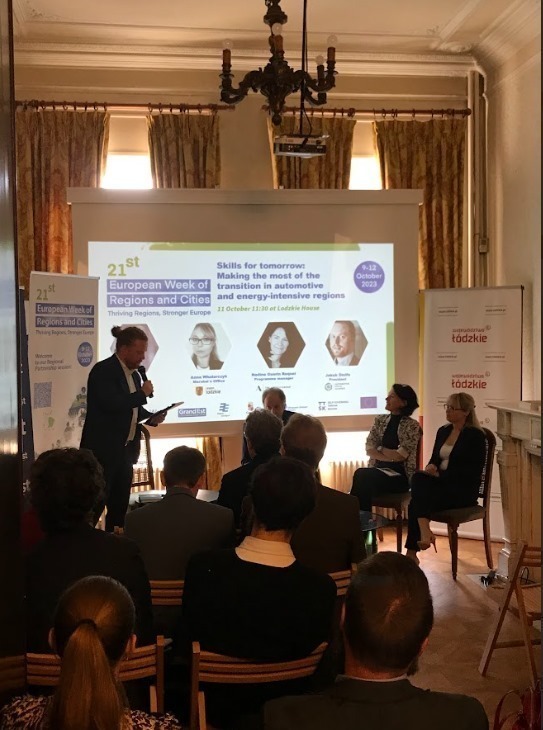The digital and green transition in the mobility ecosystem has market the beginning of a new era of technology-driven innovation and sustainability. However, its effects are not uniform across regions as there is always a socio-economic influence in each geography. The role of Automotive Skills Alliances becomes very important in this context, as is may become a bridge between regions, fostering collaboration and knowledge exchange
One of the primary functions of Automotive Skills Alliances is to provide a platform for regions to share their experiences. This exchange of knowledge is invaluable, as it allows regions to learn from each other’s successes and challenges. For instance, a region that has successfully transitioned to electric vehicle manufacturing can offer invaluable insights to a region being in the middle of the shift. This way, regions can share lessons learned from their experiences. They can identify best practices, as well as action to avoid. This collective knowledge allows regions to refine their strategies and adapt to the evolving landscape effectively
One of the most pressing needs arising from the digital and green transition is the demand for specialized training. Automotive Skills Alliances play a crucial role in identifying these training needs and developing customized solutions through various European programs developed but also through initiatives to gather, around the same table, stakeholders from the domain.
This was the main objective of the event organized on Oct 11th, 2023, in Brussels, within the European Week of Regions and Cities. The event “Skills for tomorrow: Making the most of the transition in automotive and energy-intensive regions” was meant to identify, discuss and share new perspectives on skills and training for the automotive ecosystem.
The partnership of seven regions with support of the Automotive Skills Alliance brought together political representatives and experts from the key regions, notably Ms. Nadine Guering Roquel, LHH Program Director of the Adecco Group, Ms. Anna Włudarczyk from Lodzkie region in Poland, and Mr. Vito Bardi, the President of the Basilicata Region in Italy. The discussion on green and digital transition led by Jakub Stolfa, the ASA president covered topics of skills and training for sustainable automotive and energy sectors and consequences of transition on skills needs and employment.
The cohesion and collaboration among regions play a key role in the ever-changing automotive-mobility environment as lessons learned, experience shared and common idea-sourcing help European regions facilitate the current twin transition with success.
Representatives from all partnering regions – Basilicata, Castilla-y-León, Grand Est, Lodzkie, Moravia-Silesia, Stuttgart region and the lead partner, Trnava region – were open to collaborative efforts and sharing that can lead to the development of training solutions, technologies, processes, and collaboration models important for the regional competitiveness. Moreover, this collaborative approach builds resilience, as regions can support each other during challenging times.
By facilitating the exchange of experiences, lessons learned, and the development of tailored training solutions, the Automotive Skills Alliance is ensuring that regions can navigate the evolving automotive environment successfully. Through collaboration, regions can easier adapt to the change that defines this new era of the mobility industry.
